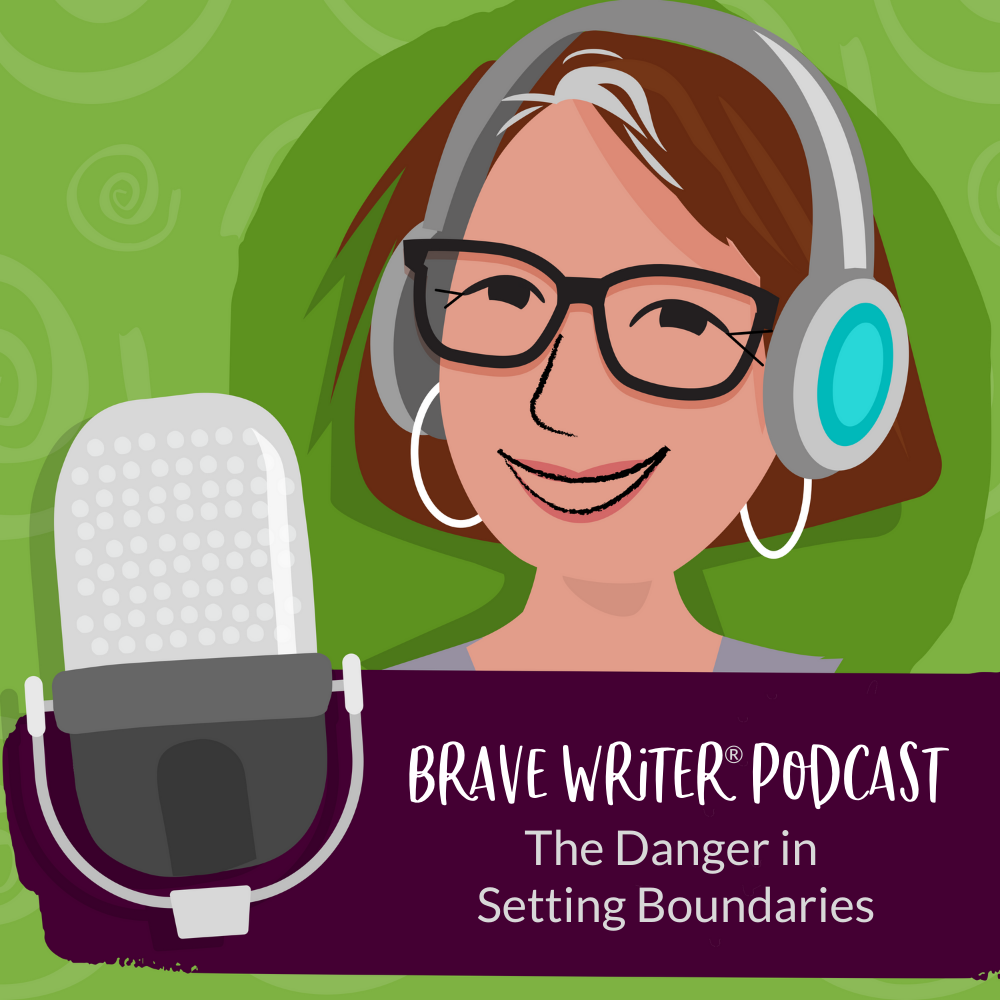[Podcast #211] The Danger in Setting Boundaries

With the holiday season approaching, I’ve been hearing all kinds of advice about boundary setting. As a grandmother myself, I’ve experienced firsthand how relationships and boundaries evolve with adult children over time.
I think what’s missing from most modern conversations about boundaries is how important it is to start from a place of:
- empathy,
- exploration,
- and open communication.
Boundaries should be like fences, not walls. Walls are immovable and permanent, and you can’t see through them. Fences can be moved, they can be adjusted, and they have gates that let people in and out.
What are your thoughts about fences versus boundaries? Reflect on what it feels like when someone sets a boundary (a requirement) for you versus considers possible solutions that take both your needs and theirs into account.
Show Notes
In Transition
Everyone is in a transition as we grow into adulthood. Your parents have never been parents of adult kids, just like you’ve never been parents of children.
When you’re younger, you hit different developmental stages in your life where having your parents around or spending a ton of time with them at some point feels like it interferes with your developing autonomy.
But remember, on the other end of the relationship are aging parents who need to grieve the loss of that level of connection and intimacy. Most of your parents’ desires come from having lived in that front-row seat to your life. It’s a pretty hard habit to quit. Plus, these kinds of life changes can bring up deep feelings around aging and mortality.
As an adult, if you want to change habits in a family, acknowledging the losses and grief of aging is essential to keeping everyone’s goodwill. Give your parents a little bit of time and space to process the conversation about boundaries. It is natural for them to experience feelings of sadness and rejection. That is human.
It might be helpful if you remind them of how they might have felt when they were young parents like you, starting their own family traditions that meant so much to you as a kid. Explain that that is what you want to create for your children.
Of course, if your parents react badly to boundary conversations, no, it’s not your responsibility to rescue them– but it might be yours, in a connected, loving relationship, to acknowledge that their grief is real, that their disappointment is meaningful. And it doesn’t mean you’re going to change your behavior.
THE BOTTOM LINE: When setting boundaries, start with curiosity about what it is like to be in your parents’ shoes. Don’t just assume that your parents will know what it is like to be in your shoes. Treat your family like human beings who love you, not like people who are designing strategies to undermine your well-being and autonomy. They are just people in a relationship with you who need to learn a new method or a new way of relating to you.
Boundaries as Fences, Not Walls
Boundaries should be like fences, not walls— Walls are immovable and permanent, and you can’t see through them. Fences can be moved, they can be adjusted, and they have gates that let people in and out.
You don’t have to set boundaries as though you’re setting up a new once-and-for-all pattern of behavior that will never change. When you do that, you’re actually creating a system you have to defend rather than an exploration of possibilities with the people you love.
Plus, you may be walling yourself and your young family in an experience that you don’t actually end up enjoying. You may want to spend one holiday as a small unit, but then change your mind the next year. Having different experiences each year is ok! That’s why starting from a basis of open communication is so important.
And remember: Expressing needs and emotions in these conversations is not some kind of vote. Saying, “I don’t want to do Thanksgiving with you this year” is not a vote against your parent. Your parent saying, “That makes me sad” is not a vote against you. It’s just people navigating a change of status in the relationship.
Gentleness towards all Generations
Lastly, I think we would all do better in these situations if we bring gentleness to all generations. People from different generations are taught different values and different vocabulary.
Often we get caught up in telling people how to behave or how to speak. Instead, we should give them a meaningful experience of the impact of their behaviors on us. For example, rather than policing certain words, we should tell our loved ones how those words land with us.
FINAL NOTE
Of course, addicts, abusers, and people with mental illness are in a separate category when it comes to boundary conversations. You do have to deal with those conditions differently. But you can still come from a place of love and set boundaries for yourself rather than rules for them.
Resources
- Start a free trial of CTCmath.com to try the math program that’s sure to grab and keep your child’s attention!
- Sign up for our Text Message Pod Ring before Black Friday and Cyber Monday to get our steepest discounts!
- Send us podcast topic ideas by texting us: +1 (833) 947-3684
- Want help getting started with Brave Writer? Go to bravewriter.com/getting-started
- Sign up for the Brave Writer newsletter to learn about all of the special offers we’re doing and you’ll get a free seven-day Writing Blitz guide just for signing up: https://go.bravewriter.com/writing-blitz
Connect with Julie
- Instagram: instagram.com/juliebravewriter
- Twitter: twitter.com/bravewriter
- Facebook: facebook.com/bravewriter
Produced by NOVA Media


















